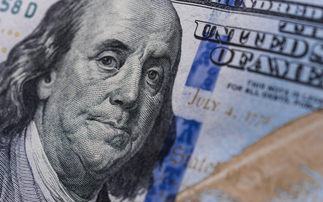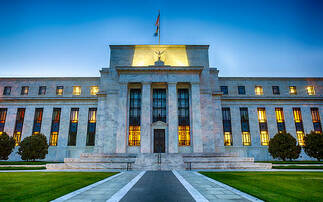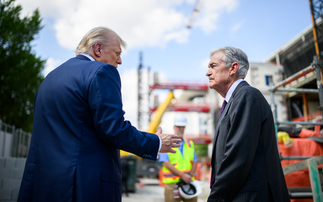In this second of a special three-part Big Question, managers tell Investment Week that investors need to keep a more vigilant and realistic eye on the economy now that Donald Trump has begun his first term as US President.
Michael Stanes, investment director at Heartwood Investment Management
Preparing for more volatility
Since the surprise election of Trump, expectations of stronger US growth and reflation have probably raced ahead of reality. Fundamental change, if it comes, will take time.
More talk of border taxes is clearly not good news in the short term for emerging market equities, which will likely have to contend with a stronger US dollar and higher US interest rates.
However, an 'America-first' policy should continue to benefit domestically exposed US smaller companies - as their rising optimism in recent sentiment surveys shows - if the US economy's growth rate does indeed accelerate.
We also expect plans for deregulation and lower taxes to boost corporate profitability, particularly in sectors such as financials and energy.
However, tax reform will not keep all of corporate America happy. Retailers, in particular, are expected to strongly oppose any tax burden imposed on payments to their foreign suppliers.
In addition, policy uncertainty surrounding the Affordable Care Act and competitive bidding for government contracts will likely keep a cloud over the healthcare sector.
Investors should prepare for more volatile US equity markets and be attuned to distinguishing between bombastic headlines and what actually happens.
Etienne de Merlis, chief investment officer at Signia Wealth
Answering complex questions
Since Trump was elected, the S&P has gone up by 6.73%, growth expectations for the US have been reforecast up and various confidence indices have risen to levels not seen since before the 2008 crisis. This is based solely on optimism and the view that under the new president, the US economy will accelerate.
With two thirds of US growth based on consumption, the wealth effect and the boost in confidence resulting from the election result might help achieve this objective, but it may not be enough.
Nothing has been achieved so far, the execution risks linked to a Trump presidency are high and there are still questions to be answered: will Trump's team be able to work together towards a coherent agenda?
Will they get the full support of the Republican Party beyond tax cuts? Will they be able to engineer new relationships with partners without triggering a trade war?
Some answers to these important questions will be given during Trump's first 100 days, but investors might wake up to a more complex reality.
David Miller, investment director at Quilter Cheviot
Living up to the hype?
Markets are telling a very clear story about the economic consequences of President Trump. Lower taxation, less regulation and investment in the right sort of infrastructure are a done deal. A potent aphrodisiac for the world's largest and most innovative economy.
The question is, will the promises be turned into a reality and, even if they are, is the good news in the price? Leading indicators are unfailingly positive and economic growth forecasts are moving higher.
If the corporate results season is accompanied by positive statements and President Trump backs away from too much protectionist rhetoric, then the optimists may well remain in charge for some time to come. A virtuous circle fuelled by positive sentiment is self-fulfilling.
Shorter term tactics are a different matter. The consensus view that the dollar will go up in a straight line is under threat. US treasury yields are lower than at Christmas and we are seeing profit taking in the sectors favoured since election night such as financials and smaller companies.
Outside the US, the view seems to be that what is good for the business of America is good for the rest of us, but those with a sense of history may remember that a strong dollar is bad news if you have to repay dollar denominated debts.
The task of turning tweets into action is about to begin and although the direction of travel seems clear, it takes time to change the world. Volatility is unlikely to be in short supply in 2017.













